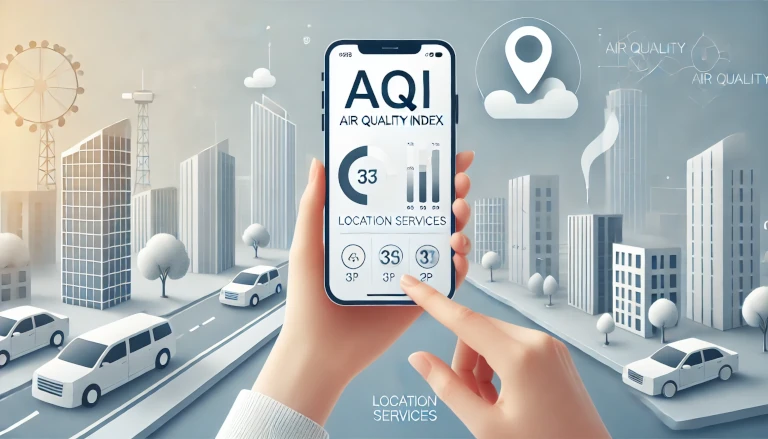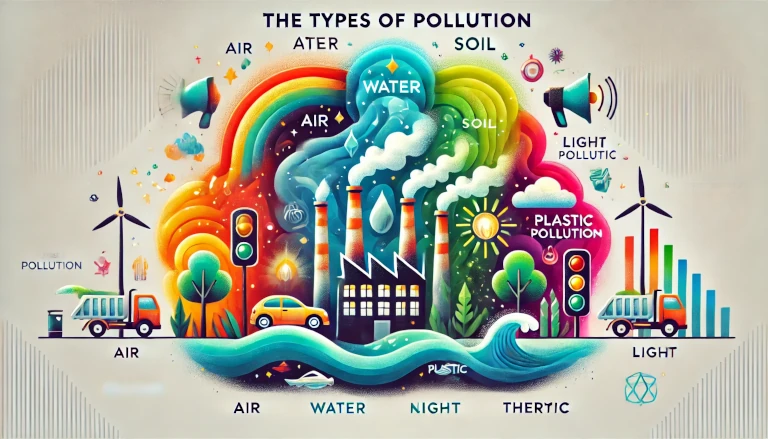The Air Quality Index (AQI) is a key indicator of the air quality in your area, providing real-time information on pollution levels and potential health risks. Knowing the AQI near you helps protect yourself and your loved ones from the harmful effects of poor air quality. This guide explains how to check the AQI near you, what it means, and why it’s essential to stay informed.
What is the Air Quality Index (AQI)? 🌡️
The Air Quality Index is a numerical scale ranging from 0 to 500, used to report air quality. The AQI measures pollutants such as PM2.5, PM10, ozone, nitrogen dioxide, sulfur dioxide, and carbon monoxide. The higher the AQI value, the greater the level of pollution and the higher the risk to public health.
Why Should You Check the AQI Near You? ⚠️
Checking the AQI in your area is important for several reasons:
- Health Risks: High AQI values can aggravate respiratory and cardiovascular diseases, particularly for sensitive groups such as children, the elderly, and people with asthma.
- Daily Planning: Knowing the AQI helps you plan your outdoor activities. On days with poor air quality, it’s best to limit outdoor exercise and wear a mask if necessary.
- Environmental Awareness: Monitoring local AQI levels can help you understand the broader environmental impacts of pollution and how it affects the quality of life in your community.
How to Find the AQI Near Me? 🕵️♂️
Finding the AQI near you is easier than ever with the availability of online platforms and apps. You can use the following tools to get real-time AQI data:
- Government Websites: Many governments provide official AQI data. In the U.S., you can visit the Environmental Protection Agency (EPA) website, and in India, the Central Pollution Control Board (CPCB) provides AQI updates.
- Mobile Apps: Apps like AirVisual, IQAir, and BreezoMeter provide real-time AQI data specific to your location. These apps offer easy-to-understand visuals and health recommendations.
- Search Engines: Simply typing “AQI near me” into Google or Bing will show you real-time air quality data for your location.
Where is AQI Data Measured? 🌎
Air Quality Index data is measured at air monitoring stations located in urban, suburban, and rural areas. These stations use sensors to track pollution levels and send the data to centralized databases, which are then made available to the public. The AQI reflects conditions over a 24-hour period or can provide hourly updates in some areas.
When Should You Check the AQI? 📅
It’s crucial to check the AQI regularly, especially in the following situations:
- During High Pollution Seasons: In many cities, winter and early spring bring higher pollution levels due to factors like temperature inversion, which traps pollutants closer to the ground.
- Before Outdoor Activities: If you plan on exercising outdoors or spending a lot of time outside, check the AQI to make sure it’s safe.
- During Extreme Weather Events: Events like wildfires, dust storms, or industrial accidents can drastically affect air quality, making it more important to monitor AQI.
How Much Does AQI Monitoring Cost? 💸
Most AQI monitoring services are free. Government websites and weather apps provide real-time AQI data at no cost. However, if you want more detailed reports or advanced features, some apps and platforms offer premium subscriptions. For businesses or institutions, installing private air quality monitoring systems can range in cost based on scale and technology used.
Advantages of Monitoring AQI Near You 🌟
- Health Protection: Knowing the AQI helps you take precautions to protect your health, such as wearing masks or staying indoors on high-pollution days.
- Informed Decisions: Daily AQI updates allow you to make better choices about outdoor activities.
- Pollution Awareness: Keeping track of air quality helps you become more conscious of environmental pollution and its long-term effects.
Disadvantages of Ignoring AQI Information ⚖️
- Health Risks: Ignoring AQI data can lead to unnecessary exposure to harmful pollutants, particularly for people with pre-existing health conditions.
- Delayed Response: Without monitoring AQI, you might not be prepared to take necessary precautions, such as wearing protective gear or avoiding outdoor activities.
Cost Benefits of Monitoring AQI 📉
Monitoring AQI near you has several long-term benefits:
- Reduced Healthcare Costs: Protecting yourself from exposure to polluted air can prevent respiratory and cardiovascular issues, reducing healthcare expenses.
- Improved Quality of Life: Avoiding high pollution days leads to fewer missed workdays due to illness, higher productivity, and overall better well-being.
Stay Informed About Air Quality Near You 🏙️
Monitoring the Air Quality Index near you is a simple but powerful way to protect your health and stay aware of your environment. With the rise in global air pollution, particularly in urban areas, it’s essential to make checking the AQI a daily habit. Whether through mobile apps, search engines, or government websites, the tools to access real-time AQI data are readily available.
By taking proactive steps to stay informed, you can minimize your exposure to pollution and contribute to a healthier lifestyle for yourself and your community. Checking the Air Quality Index near you is essential for protecting your health and staying informed about pollution levels in your area. Stay safe with real-time AQI updates.
Read this in Marathi at जवळील हवेची गुणवत्ता कशी तपासावी: स्थानिक हवेच्या गुणवत्तेची समज
Discover more from Green Ecosystem - Renewable Energy, Agriculture, and Environmental Sustainability
Subscribe to get the latest posts sent to your email.


